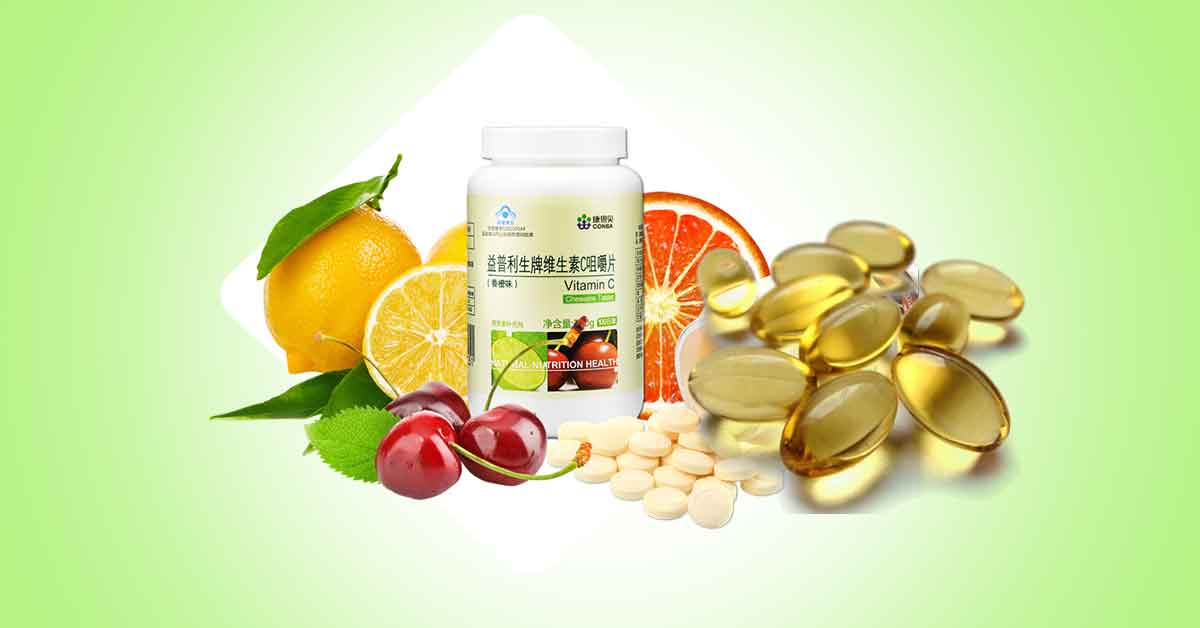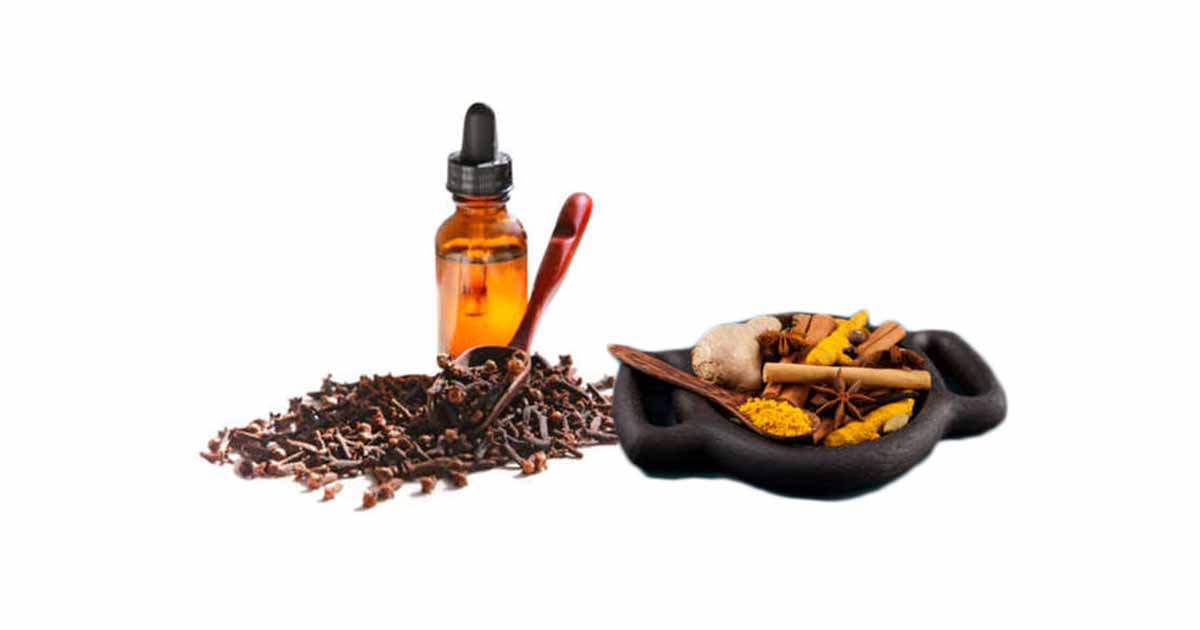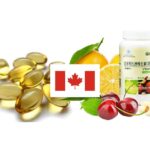Dietary supplements include dietary ingredients like vitamins, minerals, herbs and botanicals, amino acids, “dietary substances” such as enzymes, probiotics, extracts, concentrates, metabolites, or combination of constituents.
According to the Dietary Supplement Health and Education Act (DSHEA) of 1994, a dietary supplement “is a product (other than tobacco) that is intended to supplement the diet, which contains one or more of the following dietary ingredients- a vitamin, a mineral, a herb, or other botanical, an amino acid, a dietary substance to supplement the diet by increasing the total daily intake, or a concentrate, metabolite, constituent, extract, or combinations of these ingredients; is ingested in pill, capsule, tablet, or liquid form; is not represented for use as a conventional food or as the sole item of a meal or diet; and is labeled as a dietary supplement.”
Other ingredients in dietary supplements may include flavors, binders, sweeteners, excipients, flavors, and fillers. Dietary supplements should come with a Supplement Facts label, listing all the active ingredients and the other ingredients like binders, sweeteners, fillers, etc. as listed.
In the regulation of dietary supplement in the US, the Food and Drug Administration (FDA) does not determine the effectiveness of supplements being marketed. Supplements also do not need approval of the FDA before selling the supplements, unlike medicines. However, if a new ingredient is in the product, the manufacturer has to provide a safety evidence to FDA.
FDA set the Good Manufacturing Practices (GMPs) for companies that manufacture supplements. The GMPs will help to ensure the right purity, identity, ingredient, strength, composition, labelling and packaging.
Dietary Supplement Formulations
Supplements are ingested and are available as tablet, effervescent tablets, soft gels, capsules, gummies, liquids, pills, powders, mastics in syrup forms, and sometimes as drinks and energy bars.
Best Supplement Brands
There are many manufacturers of vitamins and supplements globally. A good supplement brand must meet quality criteria such as purity, potency, free from contamination, good manufacturing practice (cGMP), correct ingredients, packaging and labelling. The product must not have a genetically modified organism (GMOs) and are gluten-free.
In the dietary supplement industry, “private label” products are manufactured by one company and sold under another company’s private brand in order to cut costs.
GMO is an animal, plant, or organism whose DNA has been genetically modified in a laboratory using genetic engineering or transgenic technology. It is used to grow transplant tissues and human transplant organs.
Top supplement brands include BellRing Brands, USANA, Jamieson Wellness, Thorne Research, Abbott, Universal Nutrition, Herbalife, Amway, Ritual, MTS Nutrition, Arkopharma, Blackstone Labs, MegaFood, Hi-Tech Pharmaceuticals, etc.
Classification of Dietary Supplements
Most popular supplements include minerals like calcium, iron, vitamins like vitamins D and B12, other products like probiotics, fish oils, glucosamine, and botanicals like garlic, and echinacea.
Supplements can be of natural or synthetic based on origin.
Examples of supplements include:
- Minerals: Selenium, magnesium, calcium.
- Vitamins: Vitamin D, C, B
- Herbs: Ginseng, green tea
- Carbohydrates: dextrose
- Oil supplements: primrose oil, cod liver oil
- Activator: amino acids
- Multiminerals/multivitamins: Calcium and vitamin D
Vitamins and Minerals
Vitamins and minerals are the most used form of dietary supplements. These micronutrients are required for proper health and wellness. Inasmuch as these nutrients are necessary, excessive consumption could lead to toxicity.
Also, supplements are not a substitute for healthy diets, as food contains a mixture of minerals, vitamins, and other phytochemicals that all work together to enhance the body system, unlike supplements that only contain isolates.
Vitamins are organic compounds taken in small quantity to boost metabolic processes. Vitamins and minerals are needed by pregnant and breastfeeding mothers, alcohol and drug users, vegans, those with food allergies, and the elderly. Those with diarrhoea, celiac disease, pancreatitis, cystic fibrosis or other malabsorption disorders use supplements.
It may include a combination of both mineral and vitamin, like Calcium and vitamin D (for healthy bones and reduction of bone loss). Another formula called Age-Related Eye Disease Study [AREDS] formula (vitamins C and E, zinc, copper, lutein, and zeaxanthin) is used to prevent loss of vision in patients with age-related macular degeneration (AMD).
Folic acid, a B-group vitamin, reduce the risk of neural birth defects like spina bifida in pregnant women. Vitamin C is used to manage common cold, while vitamin E is used as antioxidant to prevent cardiovascular diseases, and slow down ageing. However, there is little evidence to suggest that vitamin C or E can prevent cancers.
Most of the minerals and vitamins obtained from food are better than those obtained from supplements, except folate. The synthetic form of folate in supplements and fortified foods are easily absorbed than folates from food.
Overdosage of vitamins may cause toxicity. Fat soluble vitamins, such as A, D, E and K, are stored in the body and can reach toxic levels. Also, water-soluble vitamins can be toxic at high level, causing nerve damage.
Large quantity of vitamin C can cause headache, nausea, diarrhea, abdominal cramps, fatigue, kidney stone, and affect the absorption of nutrient like iron raising the levels to toxic levels. It can also interfere with diabetes result. Vitamin A overdose can cause disorder in liver, central nervous system, bones and also birth disorders. Vitamin E overdose could cause early mortality.
Overdosage of fluoride in children can stain and weaken the teeth. At high time above the RDI, zinc, iron, chromium, and selenium can lead to toxicity. Iron toxicity is very common and can lead to nausea, gastrointestinal upset, and increased bowel movement. Toxicity can also cause coma and death.
It is better to take supplements for a short duration of time, and at levels close to the Recommended Dietary Intake (RDI).
Protein Powders
Protein powders are frequently used as supplements by athletes and body builders, and as the base for infant formulas. It includes the dairy proteins casein and whey and also the vegetable proteins in soy protein isolate (SPI).
Dairy products have less adverse effects, except in people with cow milk protein allergies. High level of consumption could also cause ketosis. Also, studies suggest that the weakly estrogenic compounds -genistein and daidzein bound to the protein isolate can lead to estrogenic levels after SPI consumption in soy protein formula in children, men, and postmenopausal women.
This may cause reproductive issues, infertility, and increase the potential risks of breast and endometrial cancer. However, some studies contradict this finding.
Fish Oil and Omega-3 Fatty Acids
The body cannot make essential fatty acids and omega-3 fatty acids de novo, hence it must be supplied in the diet. Polyunsaturated omega-3 fatty acids, found in fish oils, krill oil, mixture of docosahexaenoic and eicosapentaenoic acids (DHA and EPA) purified from fish oils are used as dietary supplements.
It is believed to lower the risk of diabetes, ischemic heart disease. Other effects include anti-inflammatory, cardio-protective and anticancer properties. Omega-3 fatty acids could benefit those with heart disease.
Omega-3 fatty acids and fish oils are also well tolerated (up to 1000–2000 mg/day without toxic effects). However, consumption of fish liver oil with other multivitamins and vitamin A could cause hypervitaminosis A. Omega-3 fatty acid and fish oil supplements decrease clotting and bleeding in patients taking warfarin, an anticoagulant.
Botanical Supplements
Herbal and botanical products are derived from natural parts of plants such as root, leaves, or bark, and used to improve general health. The US FDA still regulates most botanicals as dietary supplements and not as drugs.
As most botanical supplements contains a mix of organic compounds, it could result in adverse effects due to herb-herb interaction. It could also interact with other medications.
Common botanical supplements include:
- Echinacea, an immunostimulant, that contains chicoric acid, alkylamides.
- Garlic, an antioxidant, that contains allicin, and adenosine.
- St. John’s wort (hyperforin, hypericin), an antidepressant.
- Ginseng (ginsenosides), an antistress and carminative.
- Yohimbe (yohimbine), a stimulant for erectile dysfunction.
- Green tea extract (catachins), an antioxidant, and anticancer agent.
- Milk thistle (silymarin) to treat high cholesterol levels.
- Ginkgo biloba (ginkgolides) to treat memory loss, and lower blood pressure.
Precaution
Nutritional supplements are for the purpose of dietary supplementation and should not be used to replace the daily food intake.
Before taking a dietary supplement, consult your healthcare giver, as some products may interact with medications, and other supplements. Dosing should also be regulated while taking supplements.
Since many supplements have not been tested for safety in pregnant women, nursing mothers, and children, you should exercise caution when administering it to these groups.
Interactions
- Dietary supplements such as vitamins C and E, which are powerful antioxidants, may reduce the effectiveness of cancer chemotherapy.
- vitamin K interfere with the ability of warfarin to prevent blood from clotting.
- St. John’s wort increase the rate of breakdown of medications like birth control pills, anti-HIV medications, antidepressants, heart medications, decreasing their effect.
References
- https://www.fda.gov/food/information-consumers-using-dietary-supplements/questions-and-answers-dietary-supplements
- https://www.betterhealth.vic.gov.au/health/healthyliving/vitamin-and-minerals
- https://www.crnusa.org/sites/default/files/pdfs-benefits/CRN-BenefitsofNutritionalSupplements-2012.pdf
- https://ods.od.nih.gov/factsheets/WYNTK-Consumer/
- https://www.researchgate.net/publication/343843720_Dietary_Supplements_Types_Health_Benefits_Industry_and_Regulation









